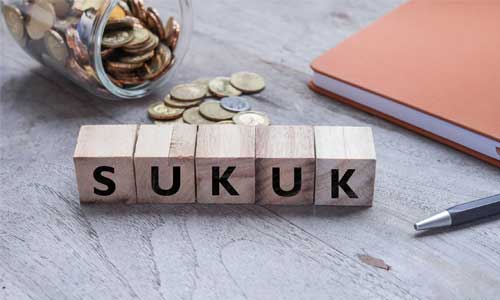Best Way to Save Money in the UAE: 10 Proven Tips for 2026
The best way to save money in the UAE isn’t about cutting out all fun. Rather, it’s about using your money intentionally. You don’t need a huge income to start saving — you need a clear plan, smart habits, and some motivation to follow through. This way, you can still enjoy life while still keeping ...read more
How Do I Save Money on a Tight Budget?
Start by treating saving like a necessary monthly expense, not something you do “if anything’s left.” Once you’ve mapped out your spending: rent, groceries, utilities, weekend cravings, you’ll have a clear picture of where your money is going. Create a budget that clearly shows —
- Income vs. Expenses (monthly salary, side hustle income vs rent, groceries, bills, etc.)
- Irregular but expected costs, like car servicing or annual insurance
- A separate savings category — set a recurring transfer to a savings account right after payday and automate it. Out of sight, out of swipe
- Try “If/Then” Planning “If I don’t hit my savings target this month, then I’ll skip one dinner out and transfer that money to savings instead.”
Budgeting is often about rethinking wants vs needs, and finding clever ways to save money without feeling deprived.
Disclaimer: The information on this page is for reference purposes only.
Best Investment Plans in UAE
Some of the best Investment quotes in UAE & Dubai are:
How Do I Decide Which Savings Goals Are Most Important?
You can’t save for everything all at once. So, prioritise based on urgency and impact. Here’s how you can think through it —
Debt vs Saving vs Investing?
- High-interest debt (like credit cards) = pay it down first
- Low-interest debt (like student loans) = you can balance between paying it off and saving
- Retirement = start early, even with small amounts. Compounding is your best friend
Planning for the near future?
Mix it up: Don’t only focus on short-term. Build your long-term future alongside. For example: “70% of savings go toward home down payment, 20% to travel, 10% to retirement” — whatever fits your situation.
How Can I Save Money?
Saving isn’t about perfection, it’s about progress and here are some tips on saving money —
1. Understand Where Your Money Goes First
Before asking “how can I save money”, take a close look at your monthly spending.
Track every expense. That includes:
- Rent or home loan
- Groceries, utilities, fuel
- Talabat orders, Netflix, weekend brunches
- Shopping, school fees, pet care—everything
Most UAE residents use a credit card or bank transfer for daily spending. That’s great because your bank statement already gives you a complete list. Just export your monthly statement and sort it into categories.
Once you see the full picture, you’ll realise where your money leaks. Maybe it’s AED 900 on deliveries, or multiple unused subscriptions. That’s where saving begins, not in theories, but in facts.
2. Use the 50:30:20 Rule to Create a Budget
This rule is simple and easy to follow if you want to know the best ways to save money in the UAE, especially when managing fixed costs like rent, DEWA, and school fees.
Break down your income like this —
- 50% for needs: rent, groceries, school, healthcare, transport
- 30% for wants: dining out, shopping, movies, staycations
- 20% for savings: emergency fund, investments, travel goals
Let’s say your salary is AED 15,000 —
- AED 7,500 → essentials
- AED 4,500 → lifestyle expenses
- AED 3,000 → savings and investment
If your essentials are crossing 60-70%, don’t panic. Many people in Dubai or Abu Dhabi face high rents. Just start adjusting slowly, maybe trim wants first, and aim to move toward this ratio over time.
3. Start Saving Automatically
One of the best ways to save money is to remove yourself from the process. Set up an automatic transfer right after payday. For example —
- On 1st of each month: Salary in
- On 2nd: AED 1,500 auto-transfer to savings or investment plans in UAE
This approach allows you to “pay yourself first,” so it doesn’t feel like money is disappearing. You’re not saving what’s leftover; you’re saving first and spending the rest.
Over time, this becomes second nature. And you’ll stop thinking, how do I start saving money? because it’s already happening in the background.
Dreaming of a Home? Kids’ Education? Retirement? Start your investment in SIP and mutual funds in UAE.
4. Get Creative with Saving Challenges
Saving doesn’t have to be boring spreadsheets. Make it playful. Here are some effective tips on saving money in UAE —
✅ AED 5-a-day Challenge
Put aside AED 5 daily (use a jar or auto-transfer weekly). That’s AED 1,825 in a year. You’ll barely notice the daily amount, but the total adds up fast. Plus, it is a great way to teach your kids the habit of saving too.
✅ Monthly Saving Challenge
Save AED 10 in January, AED 20 in February, and increase every month. By December, you’ll have AED 780.
These fun challenges help you build momentum and make saving a part of your lifestyle, not a chore.
5. Cut the Extras, Not Your Joy
Most people think saving money means sacrificing your lifestyle. But that’s not true. Try these smart swaps —
- Host a dinner night at home instead of brunching out
- Watch a movie on OSN+ or Netflix instead of the cinema
- Cut down to one or two streaming platforms instead of four
- Buy groceries in bulk for better deals
These aren’t big sacrifices, they’re intentional choices that can save you hundreds each month. Also, take a look at your phone plan, car insurance, or even rent (if you’re renewing) and compare prices. Many expats overpay simply because they don’t switch providers.
6. Prioritise Savings Like Any Other Bill
Here’s one key mindset shift: Treat savings like rent. Non-negotiable. Fixed. Once you’ve listed all your expenses in your monthly budget, make sure to include savings as a must-pay item. For example —
- Rent: AED 4,000
- Groceries: AED 2,000
- Savings: AED 2,000
Put it in a separate account. That way, it’s not in your daily spending pool and you won’t “accidentally” spend it at a mall or on a delivery app.
7. Set Clear Savings Goals and Deadlines
Having a goal makes saving purposeful. Examples of
Short-term goals —
- Emergency fund with 3–6 months of expenses
- AED 10,000 for a summer trip to Europe
- AED 15,000 for car down payment
Long-term goals —
- AED 200,000 for home down payment in 5 years
- AED 300,000 for your child’s university
- Retirement corpus of AED 1 million by age 60
Break each goal down. If you want to save AED 50,000 in 2 years, that’s AED 2,000 per month. Now, that’s a target you can plan around.
8. Make Saving Fit Your Lifestyle
Saving should adjust to your life, not the other way around.
On a tight budget?
- Cook meals at home 5 days a week
- Use community events and beaches for free entertainment
- Cancel unused memberships or software you no longer need
Earning irregular income?
- Save a percentage (like 20%) of every payment you receive
- Build a bigger emergency fund (6+ months) to cover lean periods
When you personalise your saving habits to your lifestyle, the journey becomes much smoother.
9. Don’t Just Save—Grow Your Money
Once your savings reach a certain level, start exploring investment options. For UAE residents, here are some practical choices to consider —
- Policybazaar.ae: Easy UAE-based platform for beginners to invest in retirement plans, ULIPs & child investment plans
- Mashreq or ADIB fixed deposits: Good for short-term goals with low risk
- National Bonds UAE: Safe way to save + chance to win prizes
- DIFC savings plans: For high earners looking for long-term growth
Letting your money grow is how you turn saving into wealth. This is a long-term strategy, not a short-term trick.
10. Review and Adjust Your Progress Monthly
Saving isn’t a “set and forget” process. Every month, take 30 minutes to —
- Review your spending
- Check if your savings target was met
- Adjust next month’s budget accordingly
Think of it as a personal finance check-in. If you overspent, don’t beat yourself up. Learn from it and adjust. That’s how people get better at saving, not by being perfect, but by improving gradually.
Final Thoughts on How to Save Money in UAE
Saving money isn’t about depriving yourself. It’s about building freedom: freedom to choose where you live, how you work, and which dreams you pursue. That’s why learning how to save money in the UAE is one of the most valuable skills you can develop.
Start small. Be consistent. Use challenges. Build habits. Review monthly. And invest when you’re ready.
Recap of the Best Ways to Save Money in the UAE:
- Track expenses and know where your money goes
- Follow the 50:30:20 rule
- Automate your savings
- Use creative saving challenges
- Cut non-essentials without cutting joy
- Set and prioritize real savings goals
- Make savings fit your lifestyle
- Invest your money to grow it
- Review your progress every month
FAQs on How to Save Money
What is the best way to save money in the UAE?
Start by setting clear financial goals. Avoid debt by paying off credit card balances monthly, and cut non-essentials like frequent dining out to free up more savings.
What are the 5 basic elements of a budget?
They include your income, fixed expenses (like rent), debt payments, flexible or unexpected costs, and savings, all key to managing your money effectively.
What is the best way to budget and save money?
Choose a budgeting style that fits your lifestyle. Whether it's 50/30/20 or 60/20/20, the goal is to consistently save while covering needs and occasional wants.
What are the 3 P's of budgeting?
The three Ps are Paycheck, Prioritise, and Plan. You need to track your income, focus on essential spending first, and map out how to allocate the rest for goals and savings.
More From Investment
- Recent Articles
- Popular Articles






















